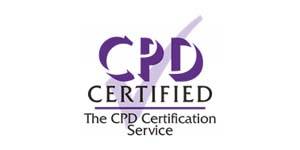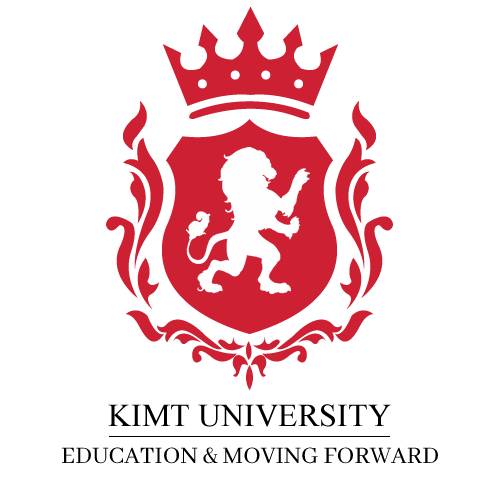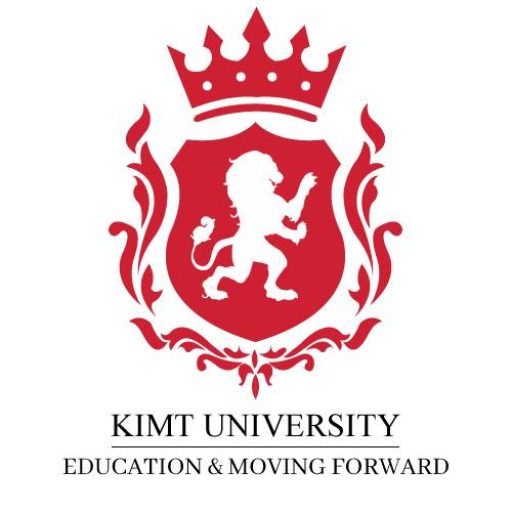
Entry Requirements
Bachelor or equivalent
Study Mode
Online
Duration
1 year (Regular)/6 months (Fast track)
Timetable
Various
Key Features & Benefits
- Comprehensive Curriculum:Covers advanced topics in quality management, process improvement, and organizational excellence.
- Global Standards:Aligned with international frameworks such as ISO, Six Sigma, and Lean methodologies.
- Practical Application:Emphasizes real-world case studies and projects to enhance practical skills.
- Research-Oriented Approach:Includes a 12-credit thesis project to develop advanced research and analytical skills.
- Industry-Relevant Focus:Prepares students for leadership roles in diverse industries, including manufacturing, healthcare, and services.
- Flexible Learning:100% online format designed for working professionals.
The Master of Quality Management Systems (MQMS) program at KIMT University, is designed to equip students with advanced knowledge and skills in quality management, process improvement, and organizational excellence. The program emphasizes the application of quality management principles across various industries, including manufacturing, healthcare, services, and technology. Students will develop competencies in quality assurance, process optimization, risk management, and leadership to drive continuous improvement and achieve operational excellence.
Graduates of the MQMS program will be prepared for leadership roles in quality management, process improvement, and organizational development across diverse sectors.
Upon successful completion of the program, graduates will be able to:
- Design and implement quality management systems (QMS) in alignment with international standards (e.g., ISO 9001, Six Sigma, Lean).
- Analyze and optimize organizational processes to enhance efficiency and effectiveness.
- Lead quality improvement initiatives to achieve operational excellence.
- Apply risk management principles to mitigate quality-related challenges.
- Evaluate and audit quality systems to ensure compliance with regulatory and industry standards.
- Communicate quality management strategies effectively to stakeholders.
- Foster a culture of continuous improvement within organizations.
- Applicants must hold a bachelor’s degree in engineering, business administration, health sciences, or a related field.
- Relevant professional experience in quality management, operations, or a related area (preferred but not mandatory).
- Applicants with a Postgraduate Diploma or equivalent (Level 7 at RQF Level) in a related field may be considered for advanced standing under the Recognition of Prior Learning (RPL) policy. Such applicants must have completed a minimum of 60 credits at an advanced level and provide supporting documentation.
The MQMS program consists of 90 credits, divided into core courses and a thesis. Each course is worth 6 credits, while the thesis accounts for 12 credits. The course structure is as follows:
Summary of Courses
- Core Courses: 13 courses (78 credits)
- Capstone Thesis: 1 project (12 credits)
What you will Study
- Principles of Quality Management
- Quality Standards and Frameworks (ISO 9001, Six Sigma, Lean)
- Process Improvement and Optimization
- Risk Management in Quality Systems
- Total Quality Management (TQM)
- Quality Auditing and Compliance
- Supply Chain Quality Management
- Statistical Process Control (SPC)
- Leadership and Change Management in Quality Systems
- Customer-Centric Quality Management
- Quality Management in Healthcare and Services
- Advanced Data Analytics for Quality Improvement
- Sustainability and Quality Management
- Thesis Research Project
To successfully complete the MQMS, students are expected to:
- Dedicate approximately 15-20 hours per week to coursework, including readings, assignments, and discussions.
- Actively participate in online forums, webinars, and collaborative projects.
- Complete all assignments, exams, and the capstone project within the stipulated deadlines.
- Maintain regular communication with faculty and peers to enhance learning outcomes.
- Exhibit strong self-discipline and time-management skills to balance studies with other commitments.
- 90% Assignments
- 10% Presentation and viva
- At the end of the program each student also submits a research project paper
All of the following items must be submitted on or before the application closing date. They may be submitted online.
- CV (maximum 2 pages).
- Passport size photograph
- A personal statement of approximately 350 – 400 words. The statement should focus on the applicant’s interest in quality management, how the program will impact their career, and how they plan to balance work, life, and study commitments.
- Copies of bachelor certificate (or equivalent) or post-graduate certificate diploma or degree parchments, as well as transcripts of associated results.
Students apply to the KIMT online application system. To apply, simply click on and follow the instructions. A non-refundable application fee applies. The application fee is paid online. Further information about applications, contact at admissions@kimtuniversity.com
Request a Follow-Up
Career Opportunities
Graduates of this program will be prepared for leadership roles in areas such as:
- Quality Management and Assurance(Quality Manager, QA Specialist)
- Process Improvement and Operations(Process Improvement Manager, Operations Excellence Lead)
- Compliance and Auditing(Quality Auditor, Compliance Manager)
- Supply Chain and Logistics(Supply Chain Quality Manager, Logistics Analyst)
- Healthcare Quality Management(Healthcare Quality Coordinator, Patient Safety Officer)
- Consulting and Training(Quality Management Consultant, Corporate Trainer)
- Research and Development(Quality Systems Researcher, Innovation Manager)
The Master of Quality Management Systems (MQMS) program at KIMT University is designed to meet the highest academic and industry standards, preparing graduates to lead quality improvement initiatives and drive organizational excellence across diverse sectors.
The program is accredited by



